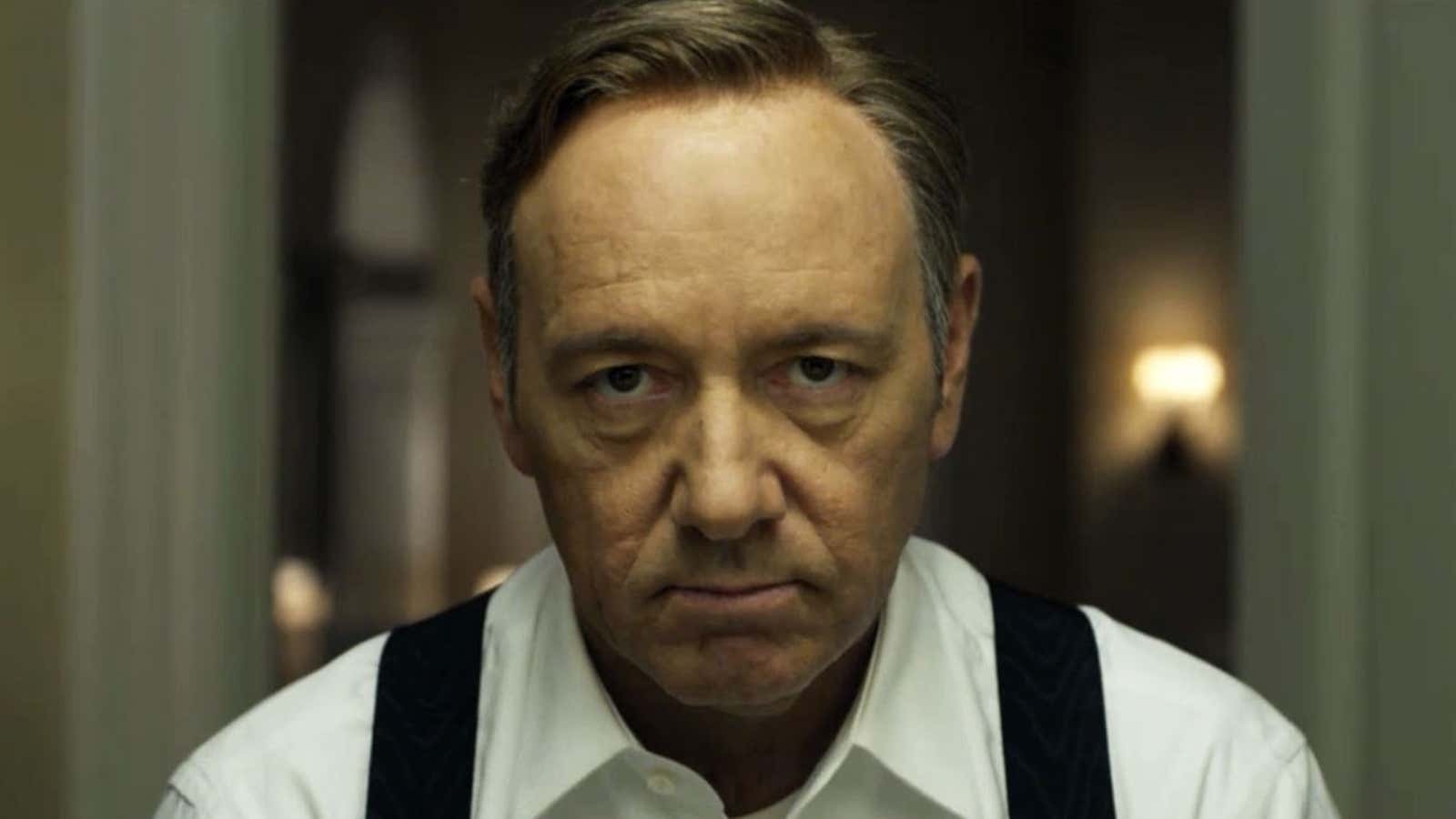ASPEN, Colorado—In the first minute of House of Cards, protagonist Frank Underwood kills a dog. But the scene may not have happened at all if the show’s creators had allowed their better judgment to intervene.
“Early on, there were a few people, actually on the creative team, they said, ‘You can’t kill a dog. You’ll lose half your viewership in the first 30 seconds,'” recalled Beau Willimon, the lead writer of House of Cards, in a discussion at the Aspen Ideas Festival.
Willimon said he took the concerns to David Fincher, the show’s director: “So I go to Fincher and I go, ‘I’m really into this opening. I think it really works for the opening of the show. But people are telling me we’ll lose half our viewers in the first 30 seconds.’
“And he goes, ‘I don’t give a shit.’
“I go, ‘I don’t, either. Fuck it, let’s do it.'”
The scene came to define House of Cards as a provocative work in the style of other dramas with male anti-heroes like HBO’s The Sopranos and AMC’s Breaking Bad. It helped establish Netflix, which carries the show, as a home for high-quality TV.
“If you weren’t going to be able to survive this dog strangling,” Willimon noted, “then this show probably isn’t for you.”
Many viewers did, in fact, stop watching House of Cards after watching Frank kill his neighbor’s dog, Netflix CEO Reed Hastings said recently. “A lot of people just—click, turned off. When we watch the stats, it’s like this,” he said, pointing to the floor.
Hastings said he told Fincher what the data showed. Fincher responded, “Don’t ever tell me that again.”
The scene’s triumph over data and better judgment is a good example of what defines recently successful shows on networks like Netflix and its competitors, which Hastings says are HBO, Showtime, FX, and AMC. They are usually driven by auteurs like Willimon and Fincher who are given more-or-less free creative rein. It’s a high-risk, high-reward strategy that is well known to film but new to TV.
In Aspen, Willimon was interviewed by former Disney CEO Michael Eisner, who is himself backing an adult animated series that will soon appear on Netflix. Eisner said the show, BoJack Horseman, originally included one character saying, “That’s as bad as ten 9/11’s in a row.” He wanted it cut, but the show’s creators tried to go around his back to Netflix, which defended the line, according to Eisner.
He insisted, though, and the line is now, “That’s as bad as 10 adult circumcisions in a row.”
“I grew up in an era of research, endless research,” Eisner said. “And all you thought about was likability.”
Willimon had earlier said that wasn’t a concern to him. “One thing I’ve said about likability, and Netflix got mad at me for saying it: Someone asked me about the likability of my characters, and I said, verbatim: ‘Fuck likability. I don’t give two shits whether someone likes my characters.’ I do care if they’re attracted to them.”
Or as Frank Underwood says as he puts down the dog, “Moments like this require someone who will act, do the unpleasant thing, the necessary thing.”




